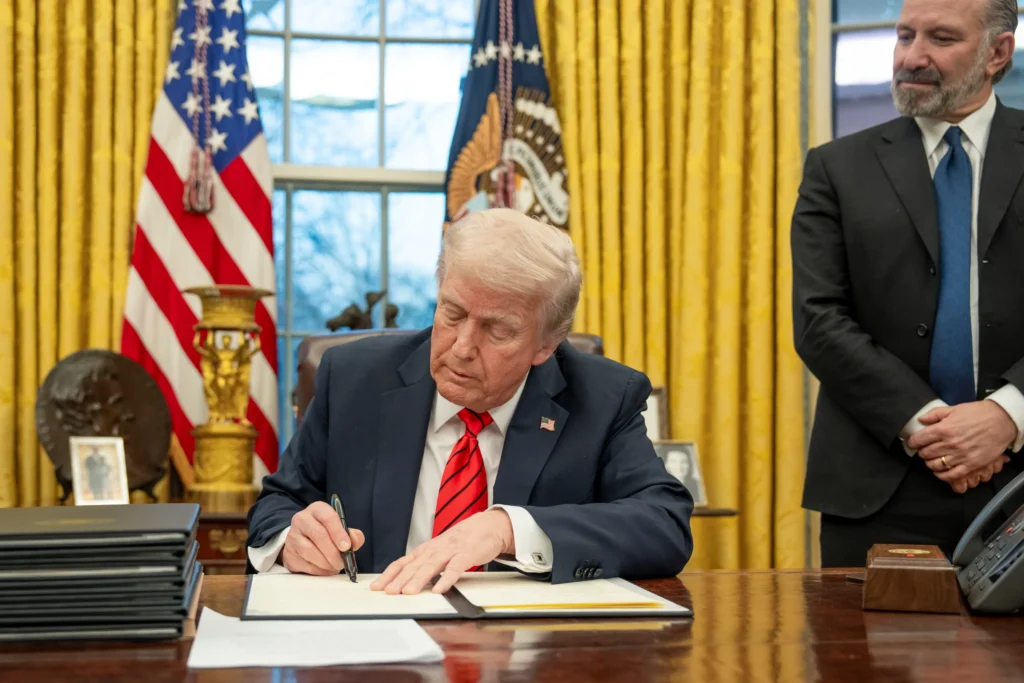U.S. President Donald Trump has used three mechanisms in the U.S.–Mexico trade agenda.
As a result of a restructuring of the U.S. tariff system with the world, relations with Mexico are in a stage of redefinition.
U.S.-Mexico trade agenda
The outlook for Mexico considers affectations from Trump’s policies, but also eventual gains considering the synergies that the United States can achieve with Mexico to compete with China and Asia.
Compared to other nations, Mexico offers comparative advantages in manufacturing production due to its geographic position, a competitive and relatively low-cost labor force, and the integration and resilience of its productive base.
Here are three mechanisms used by Trump in the U.S.-Mexico trade agenda, according to the U.S. office of the National Council of the Maquiladora and Export Manufacturing Industry (Index USA):
- Tariffs for National Security. As of March 4, Trump imposed tariffs of 25% on exports from Mexico and Canada, justifying them as a response to illegal fentanyl trafficking and illegal immigration, although he later limited the measure to products imported by the United States that do not comply with the free trade agreement between these three nations (USMCA). Used the International Economic Emergencies Act (IEEPA) to bypass Congress and declare a “national emergency” at the border.
- Border and Immigration Measures. Trump declared a national emergency on the border with Mexico, allowing for mass deportations. Restricted the right to asylum, forcing migrants crossing irregularly to wait in Mexico while their legal status is resolved (Remain in Mexico).
- Designated Mexican Cartels as terrorist organizations.
Cartels in Mexico
The reactions of foreign governments to U.S. terrorism designations are mixed, according to a U.S. congressional report.
In the case of Mexico, its government has expressed consistent opposition. It argues that these measures may affect tourism and investment. In addition, it warns of the high number of entities that could be singled out for providing “material support”. He also fears that these designations could justify unilateral U.S. military operations in Mexican territory.
On the other hand, U.S. drone surveillance of cartels in Mexico raises concerns. This activity reportedly began prior to the Foreign Terrorist Organization and Specially Designated Global Terrorist designations. However, it could be intensifying the Mexican government’s concerns.
Faced with this situation, President Sheinbaum is pushing for constitutional reforms. Her goal is to strengthen Mexico’s protection against unauthorized foreign intervention. In addition, her government transferred 29 cartel leaders to U.S. custody following the designations.

